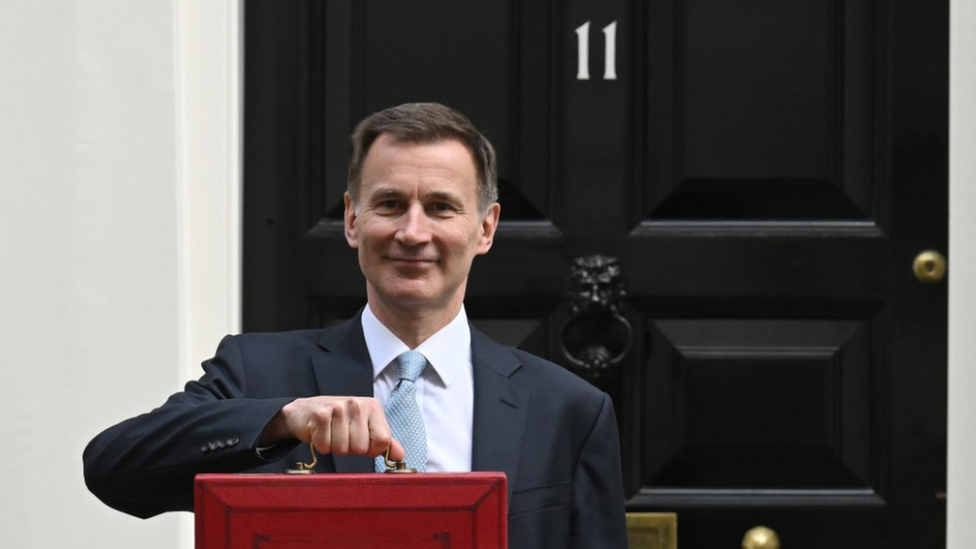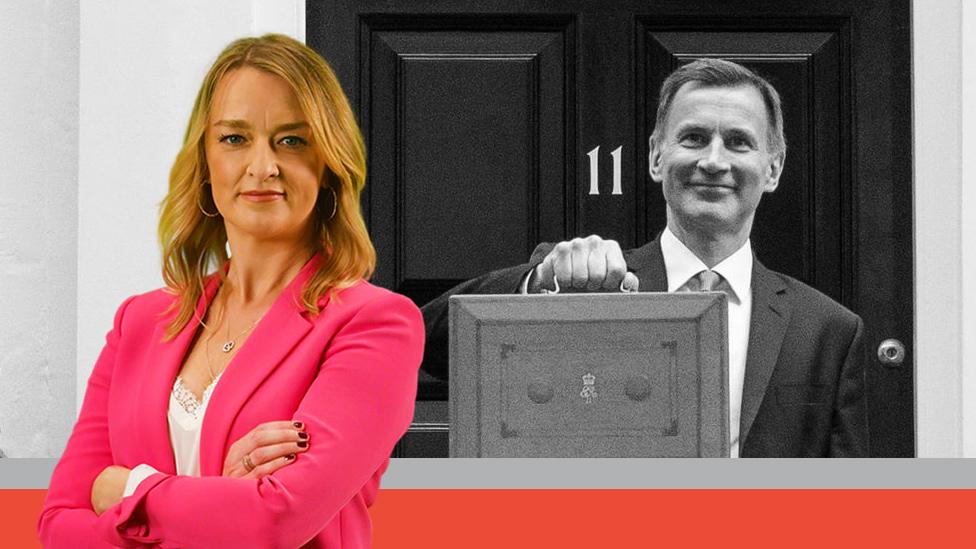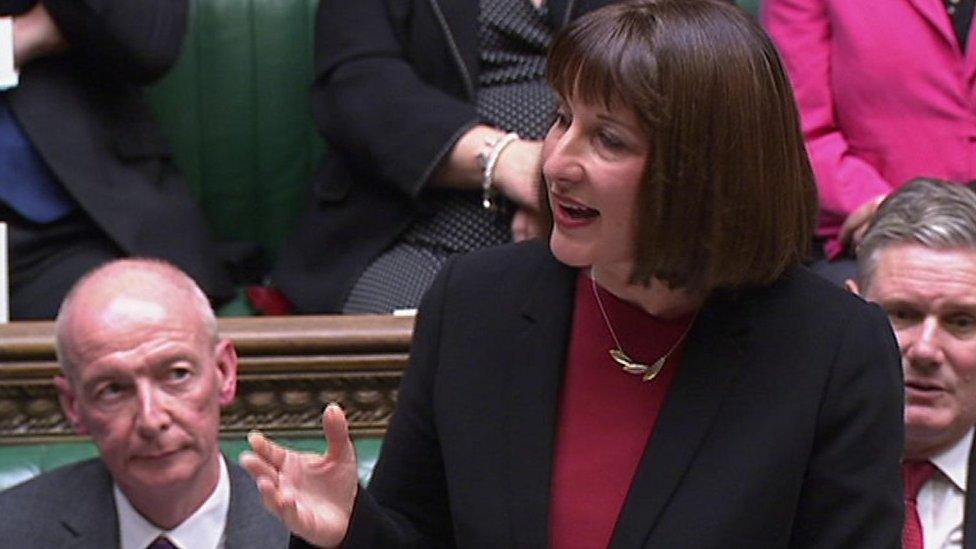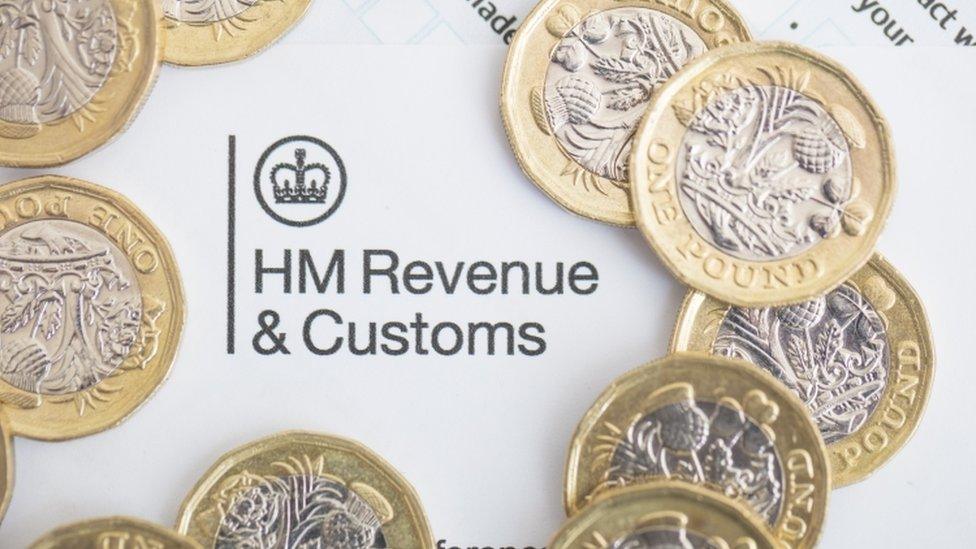Non-dom tax breaks to go, Jeremy Hunt announces in Budget
- Published

The special non-dom tax status will be abolished, the chancellor has announced in his Budget, saying those with the "broadest shoulders" would pay more.
The rules would be simpler from April 2025, raising £2.7bn, Jeremy Hunt said.
Non-domiciled (non-dom) people live in the UK, but have their home overseas for tax purposes and do not pay UK tax on money they make elsewhere.
Labour has long called for the move, saying it would spend the money saved on the NHS and schools.
Mr Hunt said that, from 2025, new arrivals to the UK would not pay any tax on foreign income and gains for their first four years of UK residency, but after that, those who continued to live in the UK would pay the same tax as other UK residents.
He told MPs there would be "transitional arrangements" for those benefiting from the current tax arrangements.
Acknowledging that shadow chancellor Rachel Reeves had promised to end the "outdated tax perks" in 2022, Mr Hunt argued that he was following a Conservative former chancellor.
"Nigel Lawson wanted to end the non-dom regime in his great tax reforming budget of 1988, which is where I suspect the Labour party got the idea from," he said.
"So the government will abolish the current tax system for non-doms, get rid of the outdated concept of domicile and the remittance basis in the tax system, and replace it with a modern, simpler and fairer residency-based system."
But, Mr Hunt said, where Labour planned to use the cash from its non-dom crackdown "for spending increases", the Conservatives would use the extra revenue "to help cut taxes on working families".
He has increased the threshold for parents to receive child benefit, which is expected to lift 170,000 families out of losing part of it.
The Chancellor also said there would be a two-year period where non-doms would be "encouraged to bring wealth earned overseas to the UK, where it can be spent and invested here", which he claimed would generate more than £1bn in tax and "an additional £15bn of foreign income".
Responding to Mr Hunt, Labour leader Sir Keir Starmer asked why it had taken the Conservatives so long to "stand up to their friends, their funders and their families", in a swipe at the prime minister's wife Akshata Murty who was revealed as having non dom status in 2022.
Ms Murty would have avoided £2.1m a year in UK tax through her non-dom status before renouncing it in April 2022, according to BBC estimates.
The BBC understands the prime minister did not take part in the decision to start taxing non-doms and got sight of the policy only once the final decision had been taken.
Deputy Prime Minister Oliver Dowden took part in discussions with the Treasury on the policy instead.
Sir Keir said: "Take the desperate move, after years of resistance, to finally accept Labour's argument on the non-dom tax regime - has there ever been a more obvious example of a government that's totally bereft of ideas?"
Accusing the Chancellor of introducing the policy as a "short-term political gimmick", he added: "What's the point of a party that's out of touch, out of ideas and nearly out of road?"
Sir Keir argued that proceeds from the policy could have been spent on 3.8 million extra NHS operations, 1.3 million emergency dental appointments, and funded breakfast clubs for 4.5 million children, had it been implemented when his party first proposed it.
In 2022, when Mr Hunt was asked by the BBC why he had not tightened rules for non-doms, he replied: "I would rather wealthy foreigners spent their money in Britain, because that supports jobs in our shops, in our restaurants, in our hotels."
According to the latest figures from HM Revenue and Customs, there were 68,800 people claiming non-dom status in 2022.
Scrapping non-dom tax status could raise £3.6bn a year, research , externalby the London School of Economics and the University of Warwick has suggested.
But some financial experts have accused politicians of picking on non-doms as "an easy target for people to throw stones at", and suggest the wealthy could take their money elsewhere.

Read more on the Budget

Related topics
- Published2 March 2024

- Published29 February 2024
- Published17 November 2022

- Published25 April 2022
